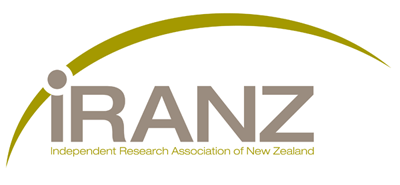
Latest news and updates
2024 Rutherford Medal: Revolutionising the treatment of asthma
December 2024: Professor Richard Beasley CNZM FRSNZ has been awarded the Rutherford Medal by the Royal Society Te Apārangi for revolutionising the treatment of asthma worldwide.
Richard, a clinician researcher, is Director of the Medical Research Institute of New Zealand, Research Physician at Te Whatu Ora Capital, Coast and Hutt Valley, Professor of Medicine at Te Herenga Waka – Victoria University of Wellington, Adjunct Professor at Ōtākou Whakaihu Waka University of Otago and Visiting Professor at University of Southampton in the United Kingdom.
His main research focus has been on asthma, which has been a major health problem in New Zealand, which has one of the highest rates of asthma in the world.
In 1985, Richard was awarded a fellowship to undertake postgraduate research and training in asthma with Professor (now Sir) Stephen Holgate in Southampton.
“This was a career-changing experience as I came to appreciate the importance and impact of clinical research,” Richard said.
MRINZ Director Professor Richard Beasley has been awarded the Rutherford Medal. Photo: Royal Society of New Zealand, Rebecca McMillan.
Dragonfly: Stencila - AI-enabled documents for scientific research
December 2024: Dragonfly Data Science has been working with Nokome Bentley on his startup, Stencila, which brings large language models to scientific research and publishing.
Stencila is a platform that helps scientists improve the efficiency and reproducibility of their authoring workflows. This next version of Stencila continues this mission by improving the access to, and use of, generative AI in scientific documents.
“AI has the potential to improve scientific productivity a great deal, but there are several things holding those gains back”, Nokome says.
“One is that the interfaces where scientists currently use AI are outside of where they're working. So, they go to Chat GPT, they type something in, and they copy and paste the generated output back into the document.
“In that process, you lose both reproducibility and the provenance of the generated content. But also, the AI doesn't have any context on the document that you're working in, or the relevant scientific literature. Because of that, it often produces inappropriate or incorrect responses.”
Image: Dragonfly Data Science.
Facebook Feed
Welcome to the Independent Research Association of New Zealand
IRANZ is an association of independent research organisations. IRANZ represents the collective interests of members by undertaking activities aimed at creating a positive operating environment for Independent Research Organisations in New Zealand.
IRANZ member organisations make vital contributions to a broad range of scientific fields, and offer an important complement to university-based and Crown Research Institute research. Our smaller sizes and greater flexibility provide an environment that is particularly conducive to innovation and end-user engagement.
IRANZ member organisations:
- Are ‘independent’ (non-government owned);
- Carry out high-quality scientific research, development or technology transfer;
- Have strong linkages with end-users;
- Work in a diverse range of settings and subject specialities;
- Derive a significant portion of their work from Government research contracts;
- Collaborate with universities, Crown Research Institutes and research departments of industrial organisations; and
- Having varying governance and ownership arrangements.
Find out more about IRANZ and our members by checking out our News page.


